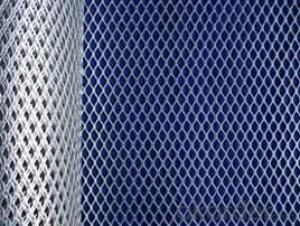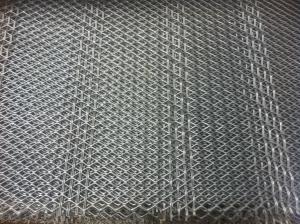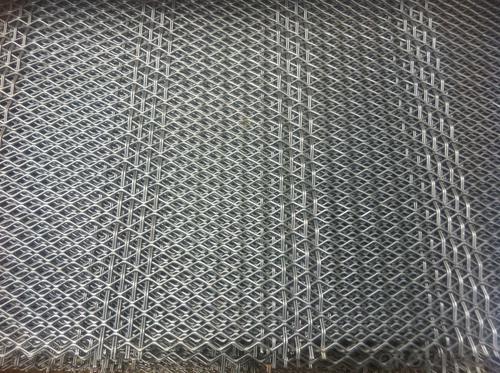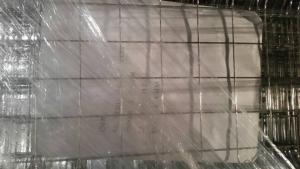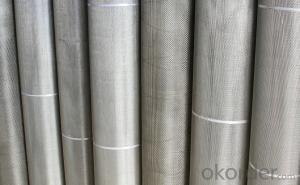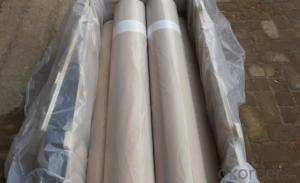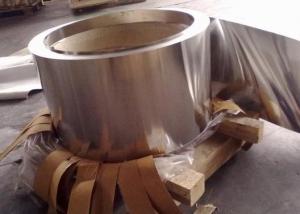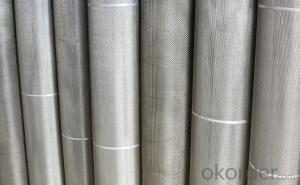316 Stainless Steel Wire Mesh Panel Hot Sale and High Quality
- Loading Port:
- Shanghai
- Payment Terms:
- TT OR LC
- Min Order Qty:
- 1000 roll
- Supply Capability:
- 10000 roll/month
OKorder Service Pledge
OKorder Financial Service
You Might Also Like
Material:
201,202,302,304,304L,316,316L
Guage:
1.wire diameter:0.1-3.0mm
2.Mesh: 1-650mesh.
3.Width:0.5-5m
3.Length:30m
Weave way
Dutch weave
Plain weave
Twill weave
Stainless steel wire mesh kind:
1, stainless steel plain weave mesh. 2, stainless steel twill mesh. 3, stainless steel mesh bamboo pattern. 4, five mechanized stainless steel mesh. 5, stainless steel perforated metal mesh. 6, stainless steel crimped wire mesh. 7, stainless steel chain link fence. 8, stainless steel mesh. 9, stainless steel welded wire mesh. 10, stainless steel hexagonal. 11, stainless steel I-Net. 12, stainless steel wire meshes. 13, stainless steel mine screen. 14 mesh stainless steel shells.
- Q: What is the elasticity of steel pipes?
- The elasticity of steel pipes refers to their ability to deform under stress and then return to their original shape once the stress is removed. Steel pipes are known for their high elasticity, which allows them to withstand heavy loads and pressure without permanent deformation.
- Q: How many fasteners are there in a ton of steel tubes?
- The fastener generally refers to the intermediate connecting parts connecting two members, in the construction project for external diameter of steel pipe scaffold with 48mm fixation, the fastener is divided into rectangular fastener (cross directional fastener fastener) rotary fastener (universal movable fastener fastener) (a direct docking fastener fastener fastener) etc..
- Q: How are steel pipes used in the automotive industry?
- Steel pipes are commonly used in the automotive industry for various applications such as exhaust systems, fuel lines, and structural components. They provide strength, durability, and resistance to corrosion, making them ideal for withstanding high temperatures and harsh conditions. Steel pipes are essential in ensuring efficient exhaust gas flow, delivering fuel to the engine, and providing structural support to enhance vehicle safety and performance.
- Q: What are the thermal properties of steel pipes?
- Steel pipes have excellent thermal properties. They have a high thermal conductivity, which means they can efficiently transfer heat. Additionally, steel pipes have a high melting point, making them suitable for handling high temperatures without any significant deformation or damage.
- Q: Can steel pipes be used for gas lines?
- Yes, steel pipes can be used for gas lines. Steel pipes are commonly used for gas lines due to their high strength and durability, making them suitable for transporting natural gas or propane safely and efficiently.
- Q: Can steel pipes be used for underground sewage systems?
- Yes, steel pipes can be used for underground sewage systems. Steel pipes have high strength and durability, making them suitable for carrying sewage and withstanding the pressure and environmental conditions underground. Additionally, steel pipes have excellent corrosion resistance properties, which is crucial for sewage systems that are exposed to moisture and various chemicals.
- Q: Can steel pipes be used for desalination plants?
- Yes, steel pipes can be used for desalination plants. Steel is often chosen for its high strength, durability, and resistance to corrosion, making it suitable for carrying and transporting the highly saline water used in desalination processes. Additionally, steel pipes can handle high pressure, ensuring efficient water flow throughout the plant.
- Q: What are the limitations of using steel pipes?
- Using steel pipes in various applications has several limitations. Firstly, the cost of steel pipes compared to materials like plastic or copper can be quite high. This can be a significant drawback for projects with limited budgets. Secondly, steel pipes are susceptible to corrosion. Exposure to moisture and certain chemicals over time can cause rust and deterioration. This can lead to leaks, reduced structural integrity, and the need for expensive repairs or replacement. Another limitation is the weight and rigidity of steel pipes. They are generally heavier and less flexible than other types of pipes, making installation and maneuvering more challenging in certain settings. Additionally, their rigid nature makes them less suitable for applications requiring movement or flexibility. Furthermore, steel pipes can experience thermal expansion and contraction. Extreme temperatures can cause them to expand or contract, potentially stressing joints, fittings, or other components. This can lead to leaks or even pipe failure if not properly addressed. Lastly, steel pipes are not as resistant to certain chemicals or substances as other materials. Some chemicals can corrode or erode the inner lining, compromising integrity and potentially causing contamination or leakage. While steel pipes have advantages, it is important to consider these limitations when selecting the most suitable material for a specific application.
- Q: Can steel pipes be used for underground water supply pipelines?
- Indeed, underground water supply pipelines can utilize steel pipes. The reason for the widespread use of steel pipes in water supply systems is their ability to endure, their strength, and their resistance to corrosion. They can withstand high levels of pressure and can accommodate large quantities of water. Furthermore, steel pipes come in a variety of sizes and thicknesses, granting flexibility in the design and installation of underground water supply pipelines. However, it is crucial to ensure that the steel pipes are appropriately coated or lined to avert corrosion and uphold the water's quality during transportation. Regular inspections and maintenance must also be carried out to prevent any potential problems with the steel pipes.
- Q: Can steel pipes be used for LNG terminals?
- Yes, steel pipes can be used for LNG terminals. Steel pipes are commonly used in the construction of LNG terminals due to their durability, strength, and resistance to extreme temperatures. Additionally, steel pipes can effectively handle the high-pressure requirements of LNG transportation and storage.
Send your message to us
316 Stainless Steel Wire Mesh Panel Hot Sale and High Quality
- Loading Port:
- Shanghai
- Payment Terms:
- TT OR LC
- Min Order Qty:
- 1000 roll
- Supply Capability:
- 10000 roll/month
OKorder Service Pledge
OKorder Financial Service
Similar products
Hot products
Hot Searches
Related keywords
